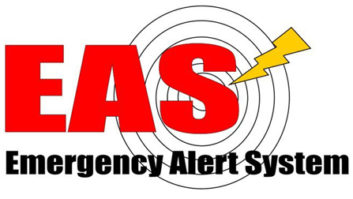The FCC is taking public comments on a partial Petition for Reconsideration about EAS waivers.
Though the petition was filed by the American Cable Association, the subject is interesting because any decision could potentially apply to broadcasters.
The ACA is asking the FCC to reconsider part of its 5th Report & Order that updates its EAS rules for the Common Alerting Protocol format. All EAS participants — radio, TV and cable — must have CAP-compliant EAS encoders/decoders installed and operational by June 30.
In order to get the new alert messages, stations must connect to the FEMA IPAWS web aggregator. Stations, and now cable operators, have been asking what the procedure is for those that do not have a broadband connection.
In the 5th R&O on EAS, the commission said “the physical unavailability of a broadband Internet service offers a presumption in favor of a waiver,” noting that presumption would generally favor smaller EAS participants for whom obtaining CAP-compliant EAS gear would be a huge expense.
The commission said the waivers would likely be for six months, with a renewal option, given that broadband Internet access may become available in an area after a waiver is granted. Alternative means of distributing CAP-EAS alerts, like satellite delivery, may become available, too.
The cable association argues the waivers for small cable systems should be for at least one year, and they would like to see some sort of streamlined waiver process for cable systems with less than 501 subscribers.
The commission clarified it did not say an entity needs a wired broadband connection to comply with the June 30 requirement to receive CAP-formatted alerts. The agency seeks comment on whether there should be a presumption in favor of the agency granting a waiver based on an entity’s lack of access to a wired broadband connection. It also asks whether access to a wireless or satellite broadband connection provides enough bandwidth to comply with CAP-EAS.
The cable association also says the commission should take into consideration the costs of obtaining broadband Internet access when deciding whether to grant a waiver and the agency asks for comment on that.
Broadcasters still have questions about waivers and broadband in advance of the June 30 deadline as well so it will be interesting to see what the commission decides in this cable case.
Comments and oppositions to the petition are due on or before June 25 and replies on or before July 3 to EB Docket 04-296.









